We hadn’t planned on returning to Sicily this winter.
Especially since we were there just a few years ago, after a hellish snowstorm that brought blocked roads, complicated access routes, and the unforgettable thrill of skiing straight from the village of Milo—750 meters above sea level—zigzagging between mimosas, cacti, and towering brooms. Beneath the steaming gaze of Europe’s highest volcano (3400 meters of geological bad temper), we even skied one of the best spring snowpacks in recent memory—laid over playful terrain, wrapped in lights and atmospheres that felt almost extraterrestrial. Why risk tainting such a vivid experience with a weaker memory?
We had just said goodbye to the Dolomites, too which, floating with their supernatural beauty above a vast sea of clouds, had gifted us with quiet, high-quality skiing far from the crowds. It’s amazing: I’ve skied this part of the Italian Alps for over twenty years, and I had never seen them like that. It felt like discovering a hidden side of someone you love, someone you thought you knew completely—and even in a difficult winter, they still find a way to surprise and move you.
How could an island in the middle of the Mediterranean possibly offer more than that spark rekindled in an old love?
And yet, François’ voice on the phone was drenched in excitement and anticipation. So much so that just 24 hours after his last, emphatic “Friends, come…” we landed in Catania for what would become so much more than an exotic ski trip. Even today, I still struggle to associate Sicily with skiing—but that’s a mistake. On this island, skiing isn’t just a sport or a mountain activity: it’s a mystical experience, an esoteric journey light-years away from anything I’ve lived on snow so far.
Here, all the norms of a typical ski destination fall apart. An island whose roots run deep into the ancient world—rich and fascinating like the vegetation that covers it. Here, all our references crumble. In the morning, you can swim in a crystal-clear sea that regains a timeless peace in winter, then ski until sunset under a warm and unfamiliar light—for us skiers, at least. And if you’re up for it, you can even surf perfect waves.
It’s comforting to think that, in an overcrowded and homogenized world, there are still hidden treasures lying in plain sight. And that the passion and skill of a guide like François lead him to find and share them with us. But like any true treasure, Etna protects itself.
As we set off, I feel like I’m in The Horde of the Counterwind: in my head, in my body, in my legs and back, the words of Alain Damasio’s book echo. Where does the wind come from that lashes this strange mountain, cloaked in ash, craters and black rock that at times rips through the layer of dirty snow beneath my skins? The clouds part for a moment to reveal a sci-fi universe, only to swallow it back in the thick fog wrapping around us. I follow the track left by the group, which fades just meters ahead. Even Layla seems to have vanished. Further up, further away—I spot them: sheltered in a gully, behind a menacing-looking rock. They’re waiting for me, in silence broken only by a wind that wipes away all words, now unnecessary. A sip of water, a bite of an energy bar… and we push on.
The switch between crystal-clear visions and total blindness is deeply unsettling. As if nature itself is toying with us—our senses, our willpower. One moment your eyes feast on majestic landscapes, the next you’re questioning the purpose, the very sanity, of what you’re doing. I feel like I’ve slipped into an alternate reality, the negative of an old photograph. Maybe I’m delirious, but these are the thoughts that crowd my mind as I climb. At least it’s not the usual dumb songs that get stuck in my head on long ascents. Anyway, the only sound in my ears is the wind.
Even peeing becomes a bit of a challenge—and for once, Layla might actually have the advantage. But the worst part is the ash on the snow, sticking to the skins and clumping under our skis. I feel like I’m in one of those childhood nightmares where you have to escape something terrifying, but your legs get heavier and heavier. Only here, you don’t wake up safe in bed, crying into your mother’s arms. You just try not to drop a glove while fishing for a few pistachios or hazelnuts from your pant pocket. A few moments ago, the sun still lit up the turquoise sea we swam in that very morning. How have the clouds swallowed us already?
Suddenly we’re in The Road by Cormac McCarthy, and I feel like one of those last scraps of humanity pushing forward into the unknown. If I had even a bit of a writer’s talent, I’d try to describe the overwhelming visual excess we’re skiing through. Ash and snow—two elements that should never meet on this scale—blend into a landscape in constant flux.
A feeling as intense as the cold moistens my eyes, and our little group moves forward wrapped in a hypnotic silence. As twilight falls, the blood-red sunset gives way to a stream of lava flowing just a few dozen meters away. Above our heads, the volcano’s crater yawns open like a wound in a vast sea of clouds, roaring like the dawn of the world.
We’ve all stepped into something powerful, profoundly emotional. A lava dragon moves and breathes in an organic whisper. I can’t look away. The waves of heat radiating from it blend with something more personal and intimate—gratitude, pure joy, the realization that we’re here, now.
We almost forget to take any photos.
On the way back, a fine rain drums against my jacket, soaking the forest and the vegetation, which in the dim evening light dissolve into something else entirely. I refuse to turn on my headlamp—I’d rather stay immersed in the moment, even if I trip constantly and can only stay upright thanks to my poles. The group is far ahead now, but I still catch glimpses of Clément and Layla’s lights at the rear.
I’m exhausted, but my legs have never let me down, and I know I can keep going—despite the bad knee and my worse temper. I feel like an old loner at the bottom of the food chain. If I were a herbivore, I’d be the next prey.
That awareness, that vulnerability, squeezes my chest.
I loved this wild dance up toward the summit—through majestic, wind-carved valleys shaped like waves of soft snow, where we tried to lay elegant tracks. Then the thrill of navigating through the damp fog, where strange snow outcrops rise like ghostly shipwrecks. And finally, another level still—where the first signs of plant life begin to appear.
It’s incredible when skiing turns into a rite of passage—a sequence of physical and visual sensations.
A wild game. The real wild ski. A simple, instinctive way of moving through a ghostly environment.
✒️ Bruno Compagnet
📸 Layla Kerley


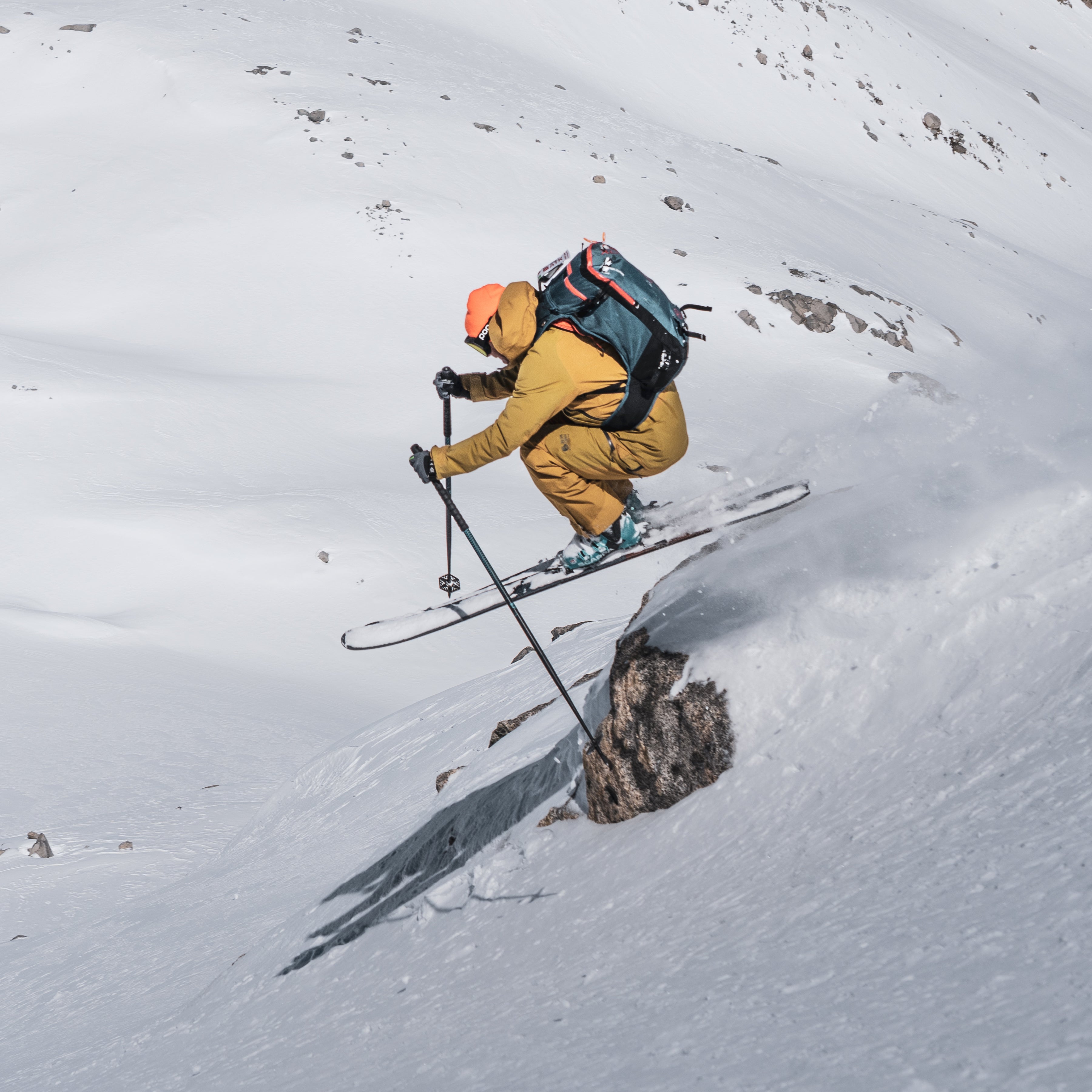
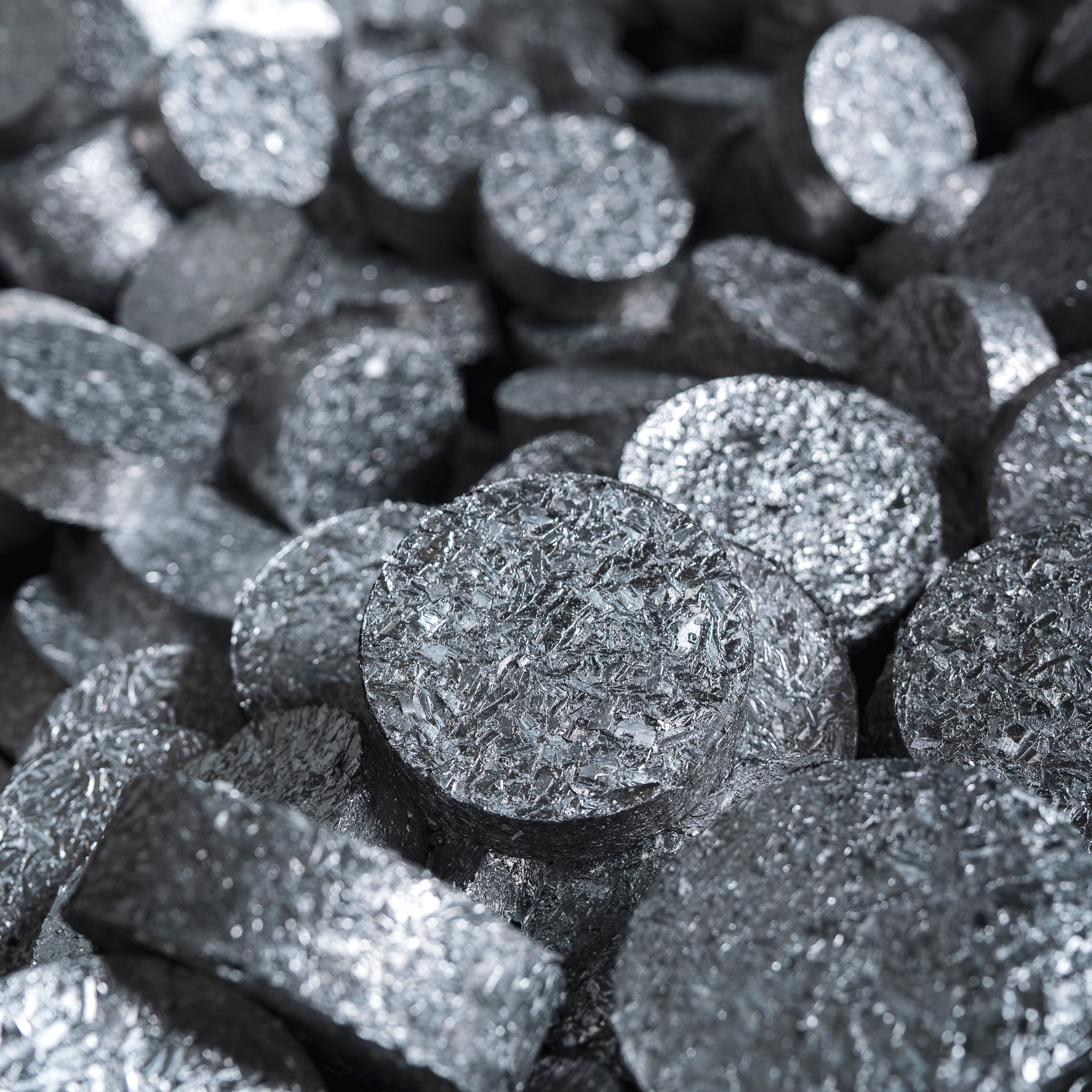
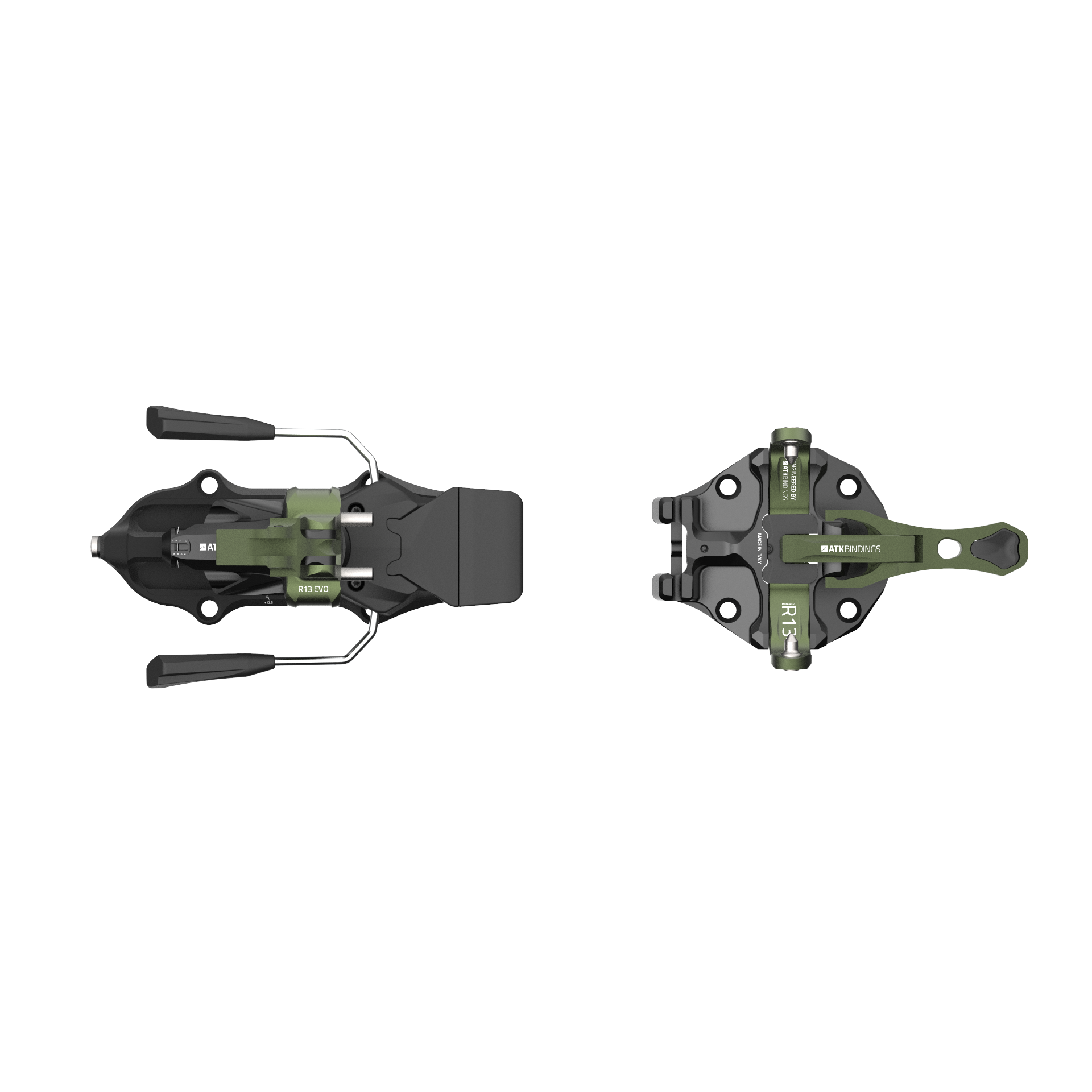
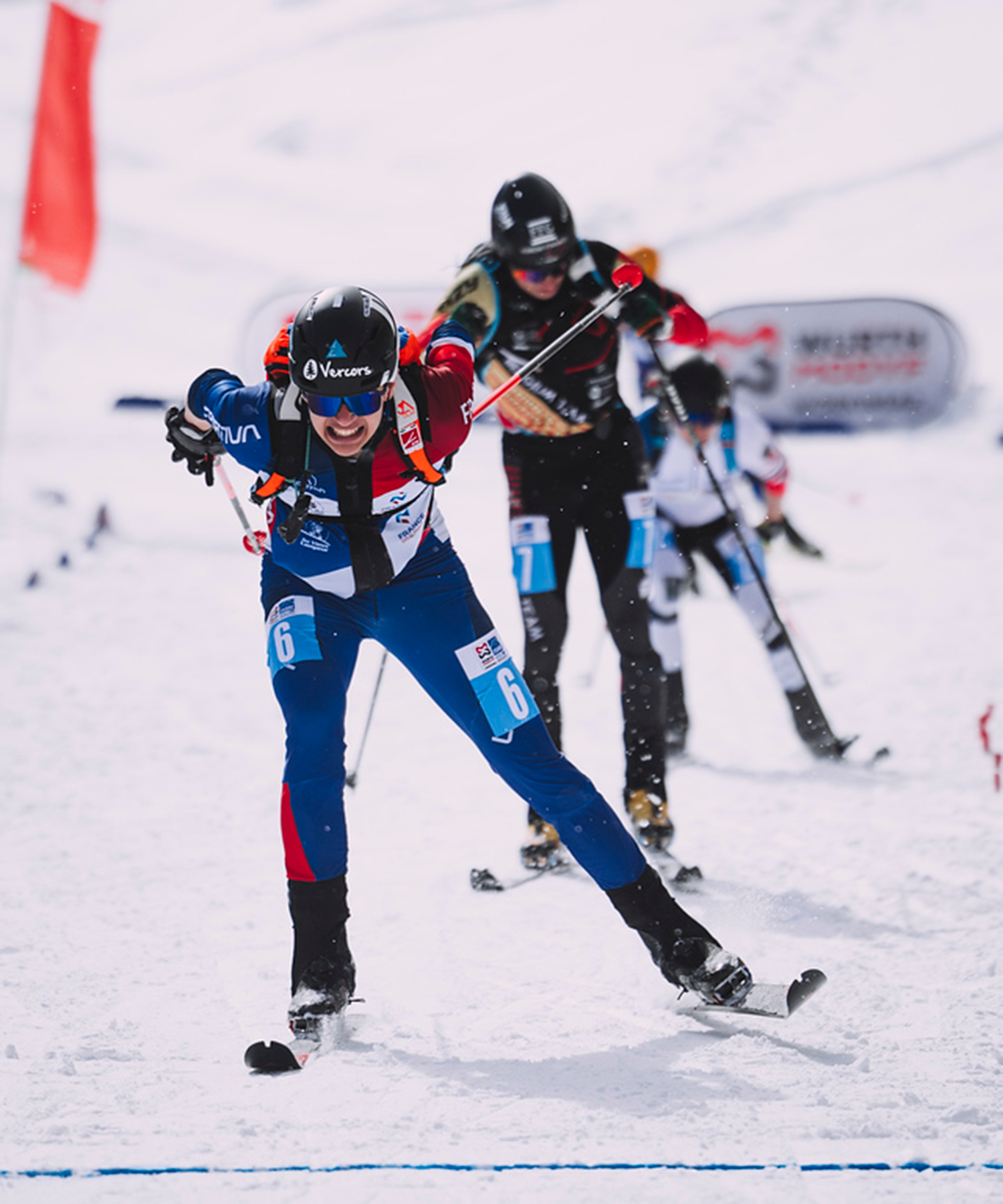
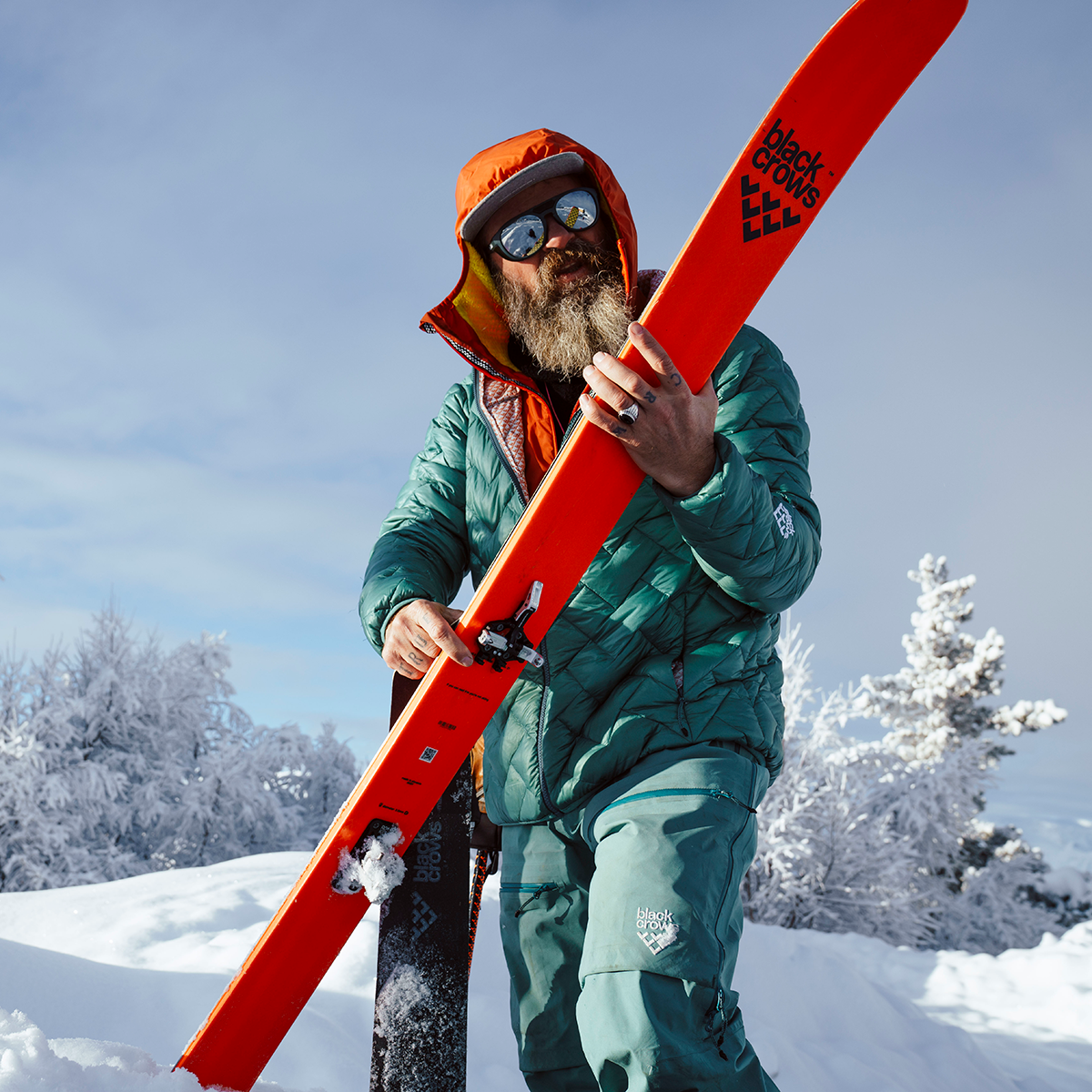
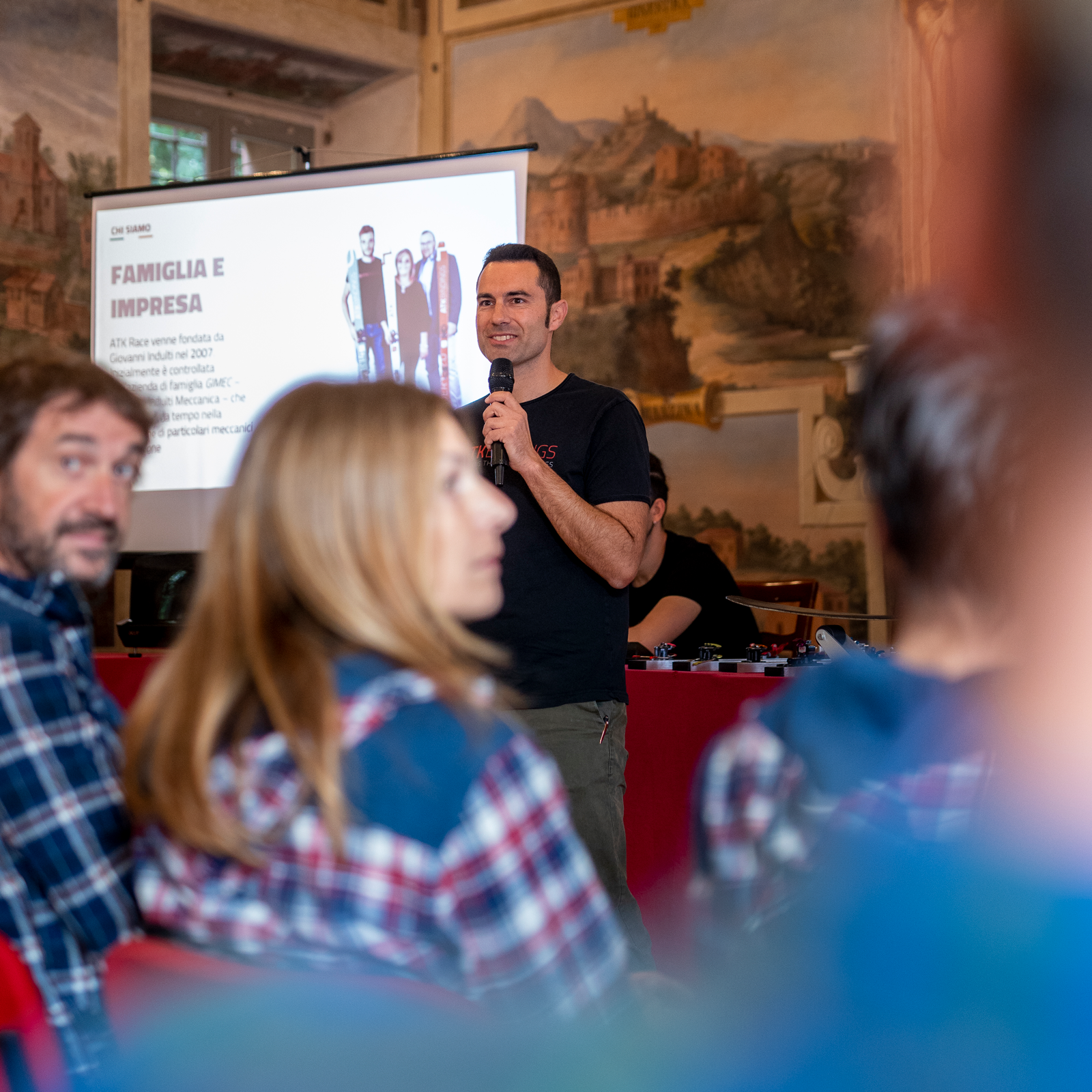
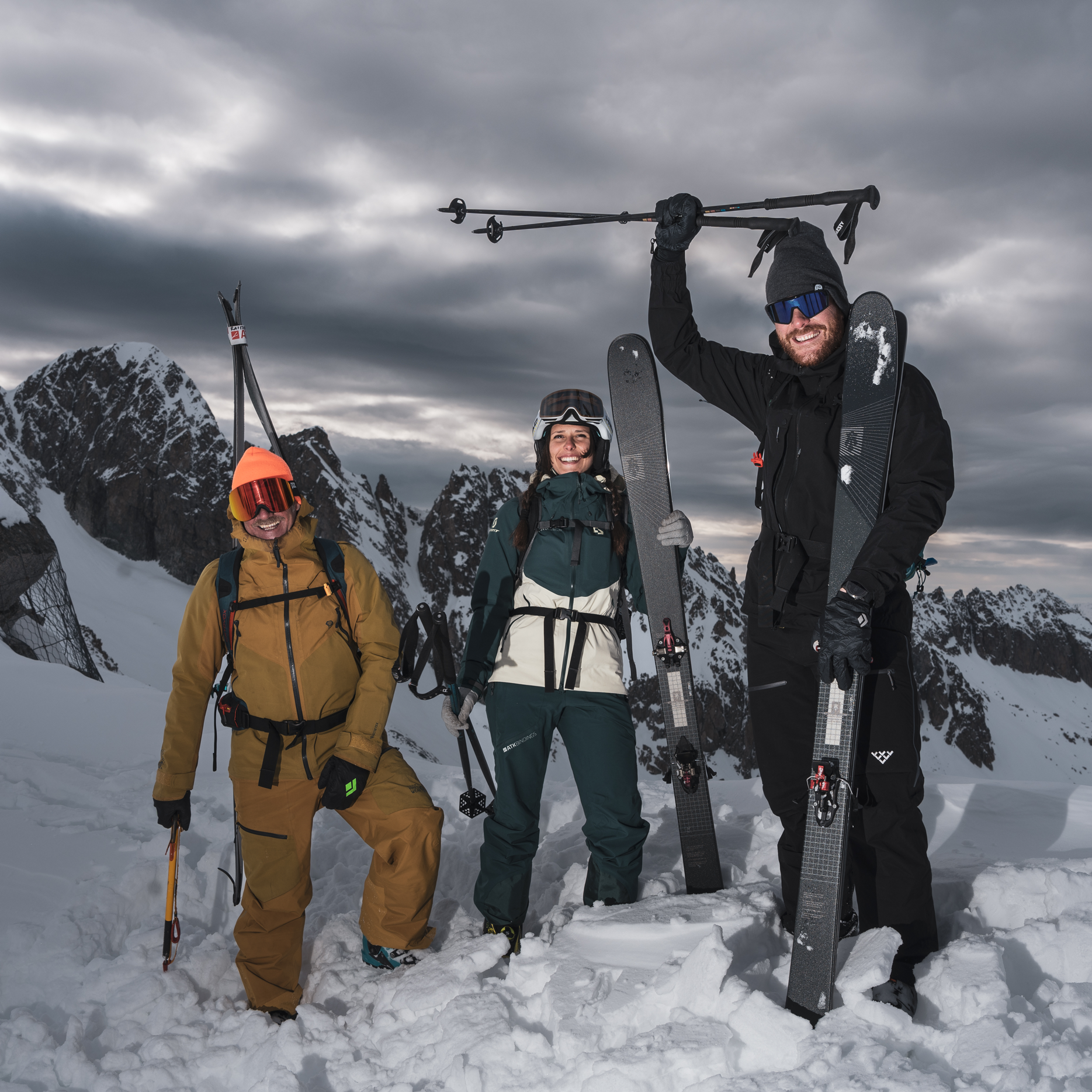
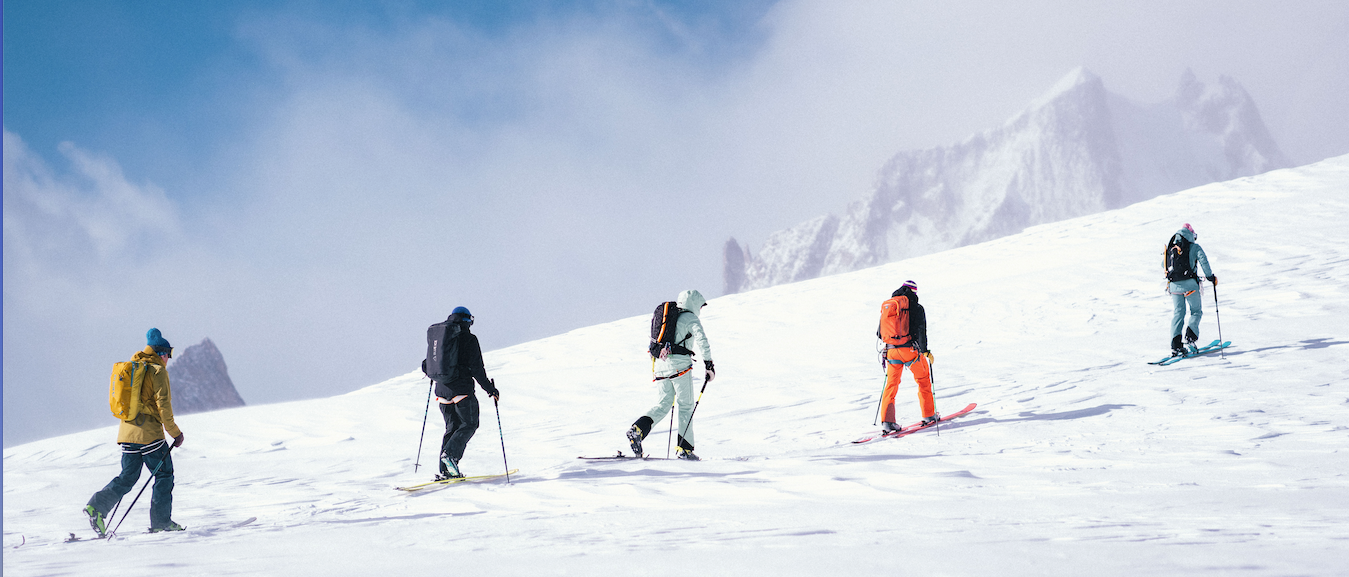
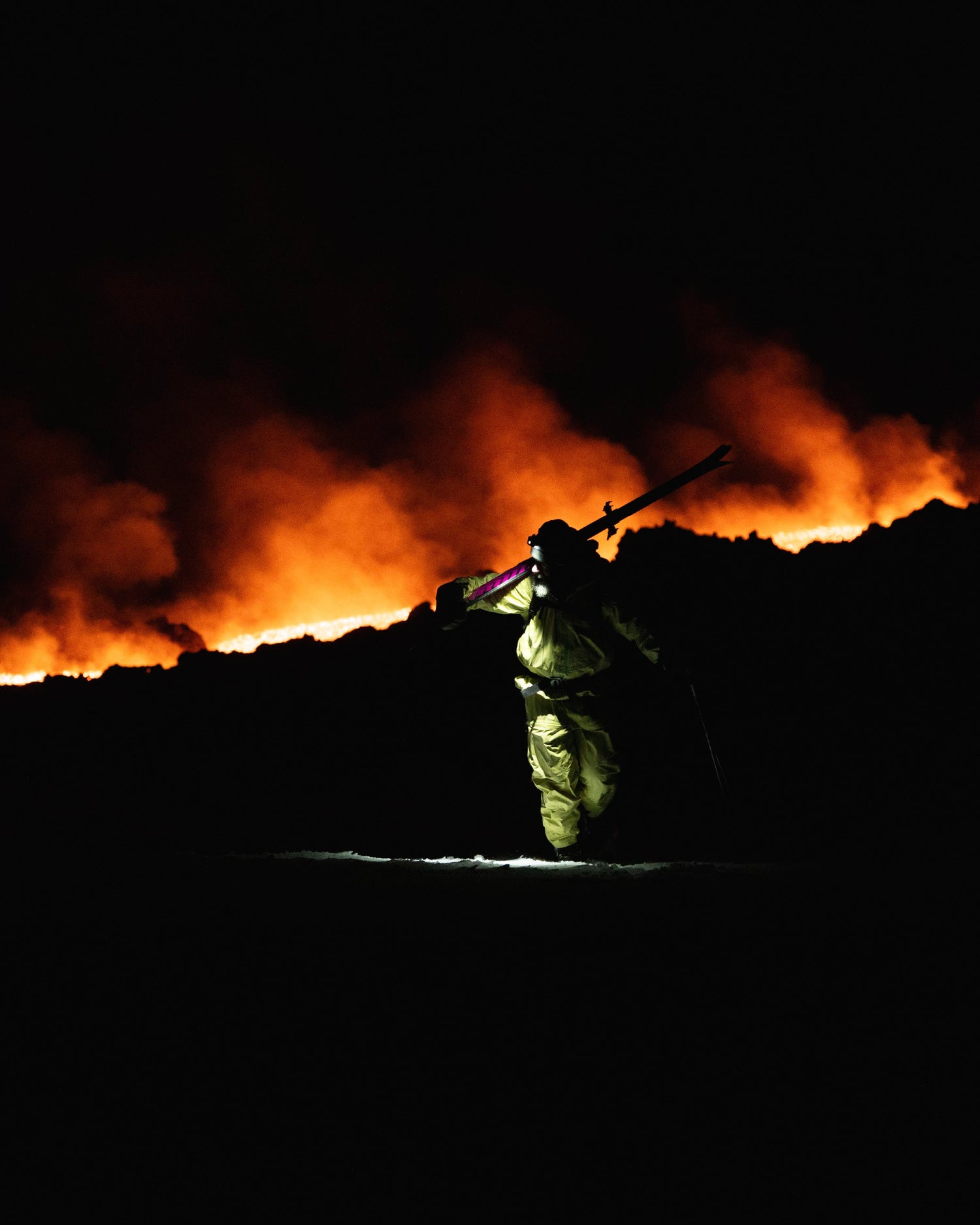

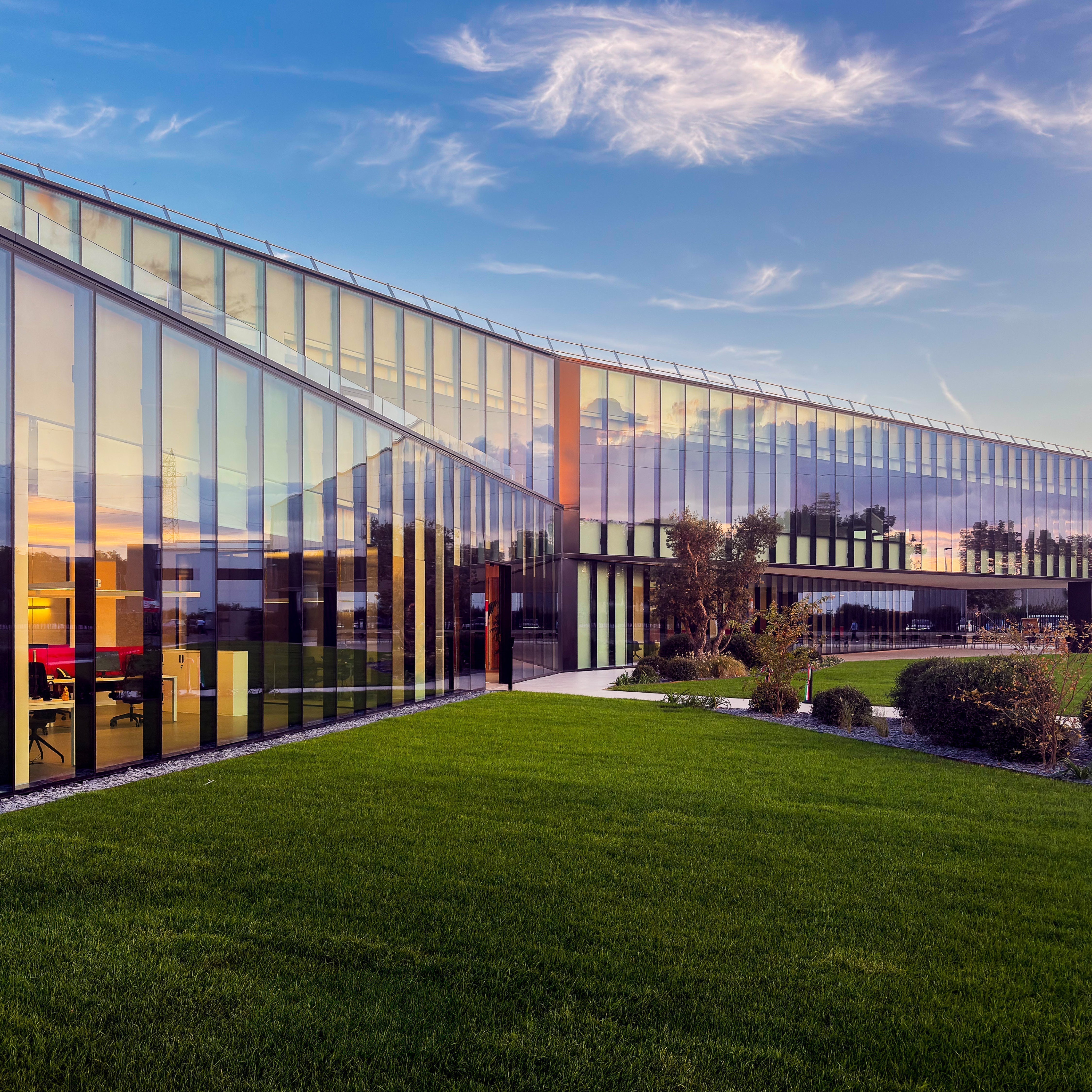
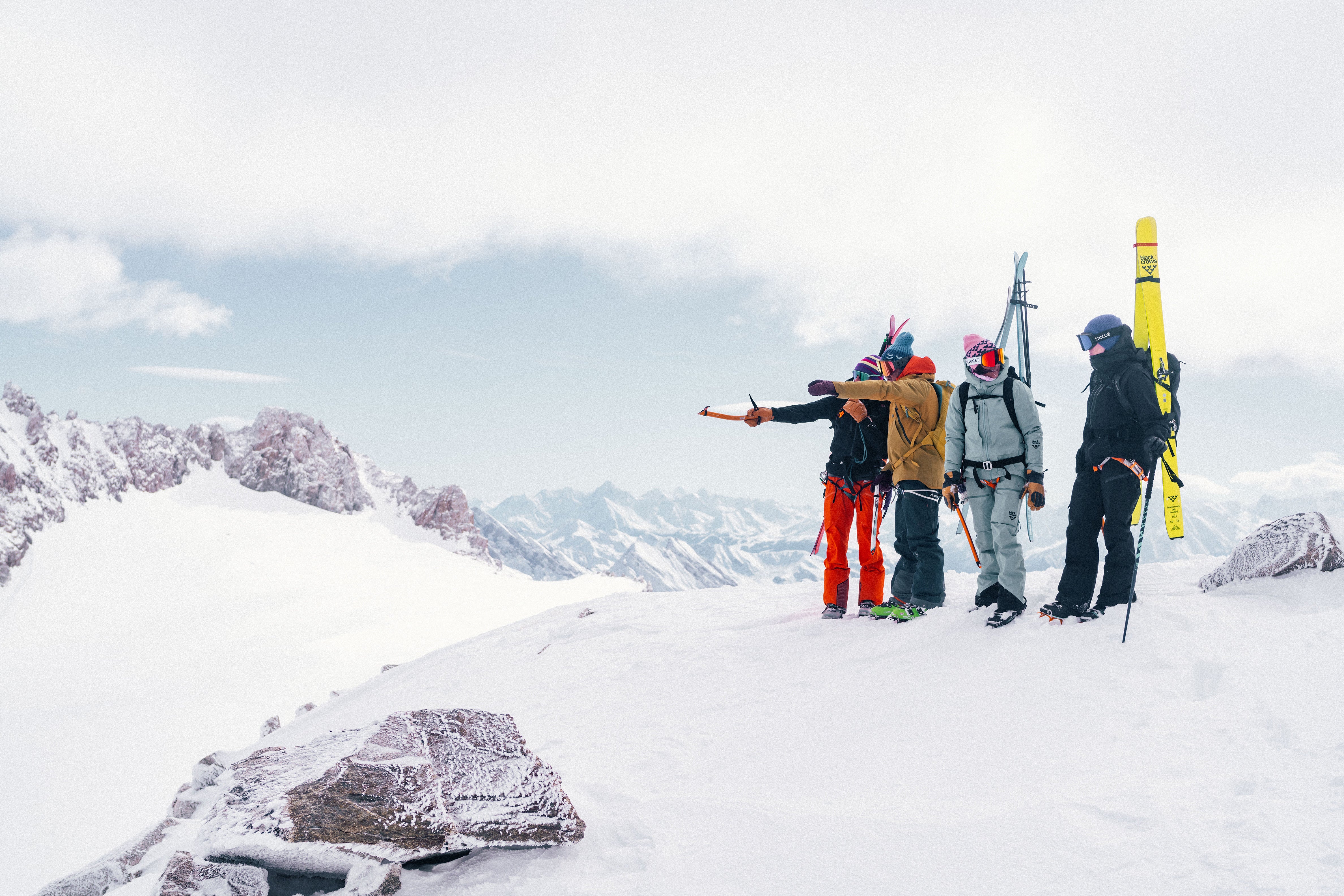
Leave a comment
This site is protected by hCaptcha and the hCaptcha Privacy Policy and Terms of Service apply.